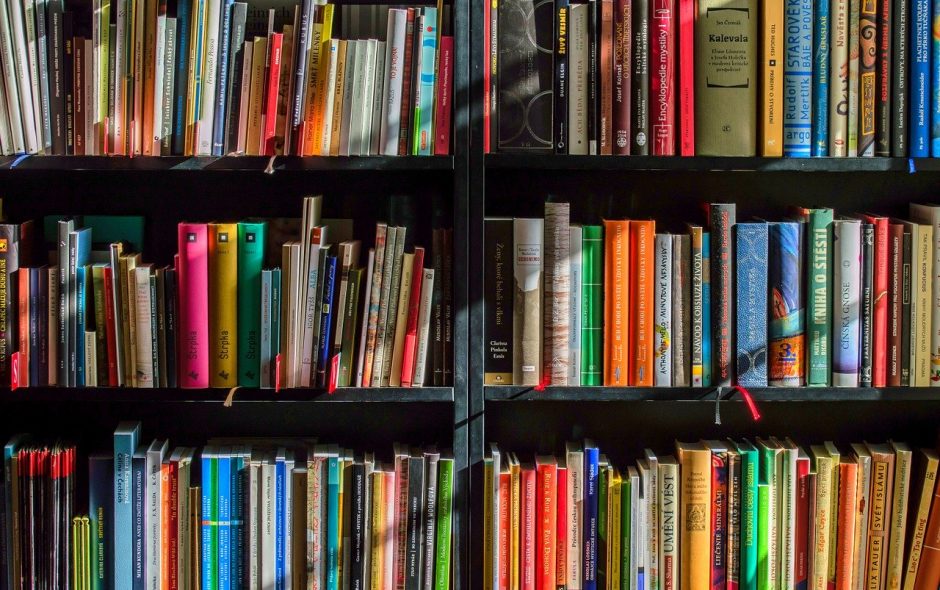I don’t think I finished my first book, cover to cover, until I was 13. It was as if my eyelids responded to words on a page like they were tiny sleeping pills, each one just…making…my…eyes…so……..heavy. I couldn’t read without falling asleep. So I didn’t.
In high school and university I relied on Coles notes or similar (there was no Internet back then!) to get the gist of the books that were assigned. For reports I would focus on the chapters or pieces of the books that I had read or heard talk of or were things that were in the news. Book learning was not a strength and it is something I regret not making into a routine today. All those wasted hours not spent reading has a compound effect — those books are still there and need to be read but I have fewer hours in a day available and fewer years left to get them in.
Both my parents were readers. My father wrote a book and had it published. I grew up with a sister that read books all night if she was into it. I just couldn’t do it. There was always a baseball game on or something to distract.
I remember finding my reading groove when I was in my early twenties and it was transformational. Two books stood out for me that made me realize what I had been missing trying to avoid it. The first was Clayton Christensen’s The Innovators Dilemma. The second was Charlie Wilson’s War by George Crille. Both of these books were prime examples of non-fiction that transforms thinking and broadens horizons. I was hooked.
It was probably timing that allowed me to find my reading niche. I was building my first company at the time and realized that there were many before who had done the same thing. It was time to learn from them. So I did. From that point forward I would consume 30-40 books per year and, thanks to technology, have scaled that to 60-70 books per year.
I’ve tried all sorts of speed reading techniques and courses but none really worked or stuck. I don’t think that reading a book with a mission of finishing is something that works. Reading is meant to be enjoyable so blowing through a book by skimming or selective reading (i.e. the summary, intro and conclusion) seems pointless to me. So I gave up on speed reading and learned how to determine if a book was worth the effort.
It’s ok to give up on a book
There is a “go, no-go” moment at about page 50 for me that determines the fate of the book. If I can get past that I’m usually in it for the long haul. I’ve heard this advice many times over the years but sometimes you have to quit books without guilt. Quitting a book doesn’t mean you don’t go back to it later. I quit The Four Hour Work Week by Tim Ferriss but went back to read it when I was in a different mindset and loved it. Even if you give up on a book you can always retry and sometimes it works out. Then there are books that I just soak up and get excited to implement — Gary Vaynerchuk’s first book — Crush It! — was that for me. I also re-read books that have had, and continue to have, impact on me every single time I read them.
The magic of audio
My speed reading technique now is audiobooks. I can read a physical book when I have time to sit and read AND listen to an audiobook while I workout, walk the dog, do work around the house, etc. This has literally allowed me to double my reading rate and consume many more books than I ever thought I could. I listen to biographies (human and business) and history books and keep the more technical or books requiring deeper thinking and notes to my kindle. If it’s a great story I listen and if it’s a note-taker I read it. This alone has given me the gift of making up for lost years wasted without reading.
News as context
While I always have a couple of books on the go at any given time (one audio, one physical) it is also critical to understand the current world around you as well for context. I rely on the obvious choices including The Economist and the New York Times. I don’t read the physical copies of the NYTimes but do read the print Economist — again it’s about focus for those articles. Podcasts have also enabled me to consume a variety of deeper level discussions and programming that I would never have had the ability to get to but are now completely accessible. I focus on current news in “print” — the NYTimes and Economist — while my podcast playlist is full of deeper interviews with business leaders, authors and experts on various topics that interest me. I stay away from “news” shows that are typically outdated by the time I get to them.
I never would have thought that having a reading strategy would be one of the most important things I would ever develop but it is. There is a difference between going through life enriched by reading and plodding through it ignorant of the stories that have been immortalized on a page. Today I can’t imagine a life without reading. A love of books brings opportunities to see the other side of an argument, to undo the fog of war or knowledge gaps and to be more whole in your thinking. It also sets an example for your children and, in doing so, hopefully helps them gain an appreciation for a lifelong opportunity to learn from some of the greatest minds to have lived.
The 20-year old version of me would laugh at this post but he was an ignorant kid who didn’t read…
